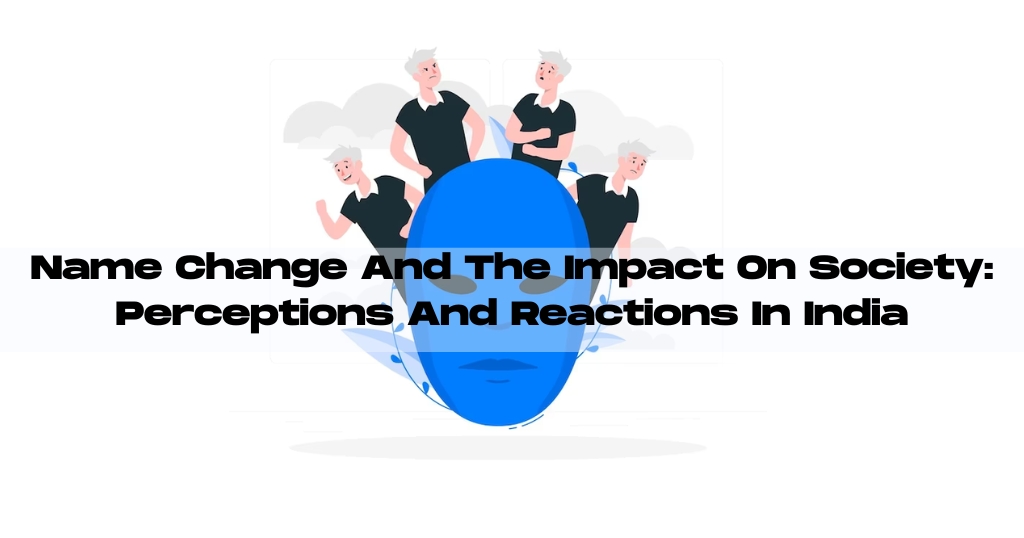Name changes have been a common practice in various cultures throughout history, often influenced by personal, cultural, religious, or societal reasons. In India, name changes hold significant importance, as they can reflect shifts in identity, social status, and individual aspirations. This blog explores the motivations behind name changes in the Indian context, the societal perceptions surrounding such changes, and the reactions they evoke.
The Driving Forces: Why People Opt For Name Changes
- Personal Identity and Cultural Affiliation Many individuals in India choose to change their names to better align with their personal identities or cultural affiliations. This may happen due to a change in religious beliefs, marriage, or a desire to embrace one’s ancestral heritage.
- Professional Advancement Name changes can also be a strategic move to enhance professional opportunities. Some individuals believe that adopting a name with a more neutral, universally accepted, or prestigious sound can positively impact their career prospects.
- Escape from Discrimination Instances of discrimination based on names have been reported in India. To escape prejudiced treatment, individuals may opt for name changes to assimilate into a different cultural or regional identity.
Societal Perceptions Of Name Changes
- Traditional Viewpoints In traditional Indian society, name changes were often met with skepticism and disapproval. People believed that changing one’s name could signify a break from family traditions or be perceived as an attempt to distance oneself from their cultural roots.
- Modern Attitudes As India becomes more cosmopolitan and open to diverse cultures, modern attitudes toward name changes have evolved. Many individuals now view it as a personal choice and respect the reasons behind the decision.
- Gender Dynamics Name changes are often more common among women in India due to marriage. Societal perceptions of this practice have been subject to debate, with some arguing that it reinforces patriarchal norms while others see it as a cultural tradition.
Legal Aspects Of Name Changes
- The Legal Process In India, the procedure for changing name varies from state to state. Generally, individuals need to submit an application to the respective government authority along with necessary documents and fees.
- Impact on Official Records Upon successful name change, the individual’s new name is reflected in official records, such as passports, driver’s licenses, and educational certificates. It is essential for the person to update these records to avoid administrative hassles.
- Name Change and Marriage Name changes after marriage, particularly among women, are widespread in India. Although not legally mandated, the practice is deeply ingrained in many cultures and is often considered an important part of the marriage tradition.
Reactions From Different Segments Of Society
- Family and Social Circle Reactions to name changes within families and social circles can vary widely. While some might support the decision and understand the reasons behind it, others may express resistance, especially in more conservative settings.
- Workplace and Professional Circles In the professional realm, name changes can elicit mixed reactions. Employers and colleagues might adapt quickly, while others may find it challenging to adjust to the new name.
- Online and Social Media Spaces The digital age has added a new dimension to name changes, with individuals altering their names on social media platforms. Responses from friends, followers, or acquaintances can be diverse, ranging from curiosity to complete acceptance.
Conclusion
Name changes in India continue to be a complex and nuanced subject, reflecting a dynamic interplay of individual aspirations, cultural traditions, and societal perceptions. As the country undergoes social transformations, attitudes towards name changes are likely to evolve further. Ultimately, the acceptance and understanding of this practice will contribute to fostering a more inclusive and accepting society.
Posted by Samira
